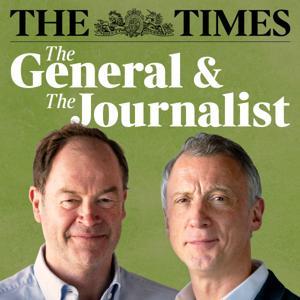Trigger warning: this episode contains discussions of death, suicide, cancer, and trauma, including adverse childhood experiences.
In this episode, we’re honoured to welcome Major Kate Page, an Army GP whose leadership journey has spanned operational deployments, trauma medicine, and long-term illness.
With years of experience as a Regimental Medical Officer (RMO) to artillery, infantry and EOD regiments, Kate brings rare insight into the emotional intelligence and empathy required to lead people in crisis, both physical and psychological.
From Iraq to South Sudan and everywhere in between, Kate has provided care in some of the most complex environments. She reflects on the unique role of the military doctor, not just treating illness and injury, but shaping culture, advising the chain of command, and transforming lives through trust and discretion. Her work demonstrates how medical leadership can create loyalty, cohesion, and mission readiness.
Kate also opens up about her personal journey with incurable metastatic breast cancer. From the patient’s chair as well as the doctor’s office, she explores the tension between the needs of the individual and the needs of the service, and what leaders can do to strike the balance. She offers a deeply human perspective on recovery, resilience, and the power of purpose.
This conversation is a masterclass in leading with empathy, navigating confidentiality, and fostering psychological safety. As Kate reminds us, “People will always remember how you treat them when they’re at their most vulnerable.” And that, more than anything, can define the strength of a team.




































